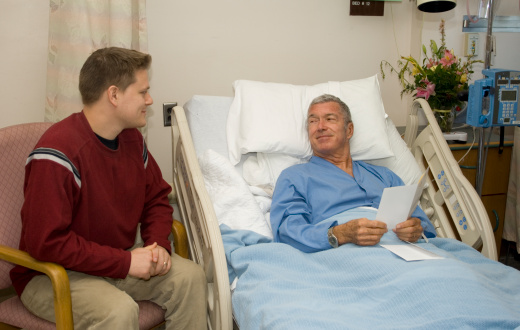 Having to go for a hospital stay is likely to cause you a little anxiety. You are putting your care into the hands of others who are supposed to be making the best decisions when it comes to your health and recovery. Not only do you need expert care while you are in the hospital, but you also need the proper follow-up care.
Having to go for a hospital stay is likely to cause you a little anxiety. You are putting your care into the hands of others who are supposed to be making the best decisions when it comes to your health and recovery. Not only do you need expert care while you are in the hospital, but you also need the proper follow-up care.
In recent health news, a lengthy study looked at the performance of medical staff when it came to treating hospitalized patients. The results are not particularly reassuring. Let’s take a look at just one review from one hospital.
According to the research team conducting the trial, at this particular hospital, there were 29 admissions to the two intensive care (IC) units during the study period. Data were collected from 20 of these admissions, which originated from 10 different wards. The researchers were looking for evidence that patient documentation was updated and thoroughly completed at each stage of treatment while at the hospital. Here’s what they found:
— One patient was transferred without any documentation
— 10% of patient documentation omitted allergy status
— 30% omitted information about the usual community pharmacy used by the patients
— 19% of hospital forms omitted details of medication changes during admission
— A total of 207 items were prescribed and, although 21 medication changes were documented, a further 75 were not.
— Details of anticoagulant therapy were variable
— Dates of next appointment, strengths of prescription meds dispensed, discharge dose. and whether counseling had been completed were omitted for some patients
— Several discrepancies were noted between the date of discharge on prescription meds and the date on which the patient was discharged
— Four dispensing errors were identified The researchers concluded that the main matters of concern identified were that medication changes were not documented by medical or pharmacy staff and information on adherence was not available to future care providers. These factors together could have a significant negative impact on patient safety.
If you go for a hospital stay, follow this health advice: get some help from someone you trust. Make sure this person double-checks the details of your hospital stay, including medication doses, prescribed treatments, and info about your medical history (including any allergies). If you are transferred from one part of the hospital to another, all of these details will have to be updated again. One other health tip: get someone to help with your discharge, too. Make sure you have access to all the treatments you need and are eligible for once you leave the hospital.
And don’t forget — you can still get your doctor’s advice while you’re in the hospital and especially afterwards when you’re back home recovering.
Read this article for some tips on how to avoid infections while at the hospital.
